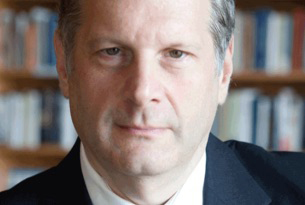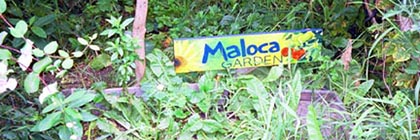A breakthrough discovery by York University researchers shows that children have difficulty suppressing irrelevant visual details when having to resolve other specific details.
The purpose of the research was to determine if young children can suppress their visual surroundings when attempting to inspect a specific detail in front of them (i.e. to recognize if someone is wearing a hat, do human brains have the innate ability to suppress other details of the person like hair colour) or if this ability develops over time.

The study, “Development of spatial suppression surrounding the focus of visual attention,” was published in the Journal of Vision and was conducted by an interdisciplinary research team including Department of Psychology PhD student Audrey Wong-Kee-You and her primary supervisor, Professor Scott A. Adler. Lassonde Professor John Tsotsos, from the Department of Electrical Engineering & Computer Science, also collaborated on the research.
A main component of the research involved a study held at the Ontario Science Centre with 400 kids participating, designed and conducted by Wong-Kee-You. She concluded that this quality to suppress irrelevant visual details when having to focus on other specific details only develops by 16 to 18 years of age and is, in fact, not an innate characteristic of the human brain.
The research can be applied in countless ways, such as informing educational practices by enabling educators to better align teaching methods and educational requirements to age-appropriate attentional skills or influencing how environments for children are designed.
In the future we may be better equipped to recognize difficulties in children and determine how to best deal with them to improve their visual function, said researchers.
This is also a revelation for those in the field of machine learning, as the principles of machine learning theory are built on the idea that one need only feed an artificial brain with sufficient data. These results show that the human brain takes years to develop and does so while it learns about its world.
This insight from human visual development suggests that a different approach to machine learning and artificial intelligence is needed if it is to truly behave as humans do.
The interdisciplinary nature of this research is a key part of its success.
“I had spent a good portion of my PhD reading and learning about descriptive models of visual attention, but meeting John [Tsotsos] and working on this project gave me the opportunity to familiarize myself with his computational theory, the selective tuning model of attention,” said Wong-Kee-You. “This gave me a different perspective and allowed me to consider the strengths of theories with an algorithmic mechanism.”








 The following is an important message to York University community members from Provost and Vice-President Academic Lisa Philipps:
The following is an important message to York University community members from Provost and Vice-President Academic Lisa Philipps:
 All students, faculty, staff, friends and adjacent communities are invited to the Harvest Gathering at the Maloca Community Garden to participate in garden-based workshops and conversations, and hear a presentation about the Finding Flowers project co-led by FES professors Lisa Myers and Sheila Colla.
All students, faculty, staff, friends and adjacent communities are invited to the Harvest Gathering at the Maloca Community Garden to participate in garden-based workshops and conversations, and hear a presentation about the Finding Flowers project co-led by FES professors Lisa Myers and Sheila Colla.
 The CCY program has a strong focus on research with children and young people – research that engages children and youth as active participants in the knowledge construction process. A cornerstone of the program is a fourth-year honours research project in which majors conduct their own research projects with child and youth participants. This panel will give students in the York community a better understanding of the practical and ethical considerations involved in this process.
The CCY program has a strong focus on research with children and young people – research that engages children and youth as active participants in the knowledge construction process. A cornerstone of the program is a fourth-year honours research project in which majors conduct their own research projects with child and youth participants. This panel will give students in the York community a better understanding of the practical and ethical considerations involved in this process.




